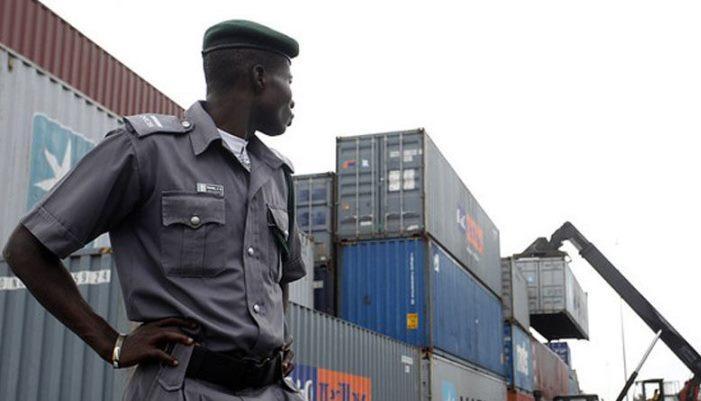Comptroller of Seme command, Nigeria Customs Service (NCS), Timi Bomodi, says naira devaluation has positively impacted exports in Nigeria.
During an interview with the News Agency of Nigeria (NAN) Bomodi said that imports and exports are usually influenced by market forces, specifically demand and supply.
“The exchange rate plays a big role in determining the demand or the purchasing power of the people,” Bomodi said.
“We are talking about the exchange rate of naira vis a vis its impact on exports. Now, as the value of naira begins to decline, you find out that Nigerian-made goods are considered cheap within the region.
“This encourages people from neighbouring countries to want to purchase goods from Nigeria but while we complain that the exchange rate has a negative impact on imports, it has a positive impact on exports.
“Yes, we couldn’t buy goods because the dollar was high but people saw a cheap naira as an opportunity to get goods from Nigeria.
“For the first time, you have a net export gain for Nigeria vis a vis her neighbouring countries, because you find out that what makes Nigerians go to their neighbours is now making them come to Nigeria.”
Bomodi said the devaluation of the naira has boosted the local economy.
“Even, a devalued naira is an advantage for export, So it’s not such a negative thing but in trade, you have to balance both ends,” he said.
“Here at Seme-Krake border post, we have our primary responsibility as customs which is facilitation of legitimate trade.
“We deal with a lot of imports and exports and enforce fiscal policies of the government, particularly in area of prohibition.
“In Seme-Krake, the Lagos-Abidjan corridor is considered as the most viable trade corridor in West Africa and indeed the whole of Africa.
“So viable, so strategic to the economic development of Africa that the European Union and other international agencies are ready to cough out a humongous amount of money to develop infrastructure around this axis.”





















